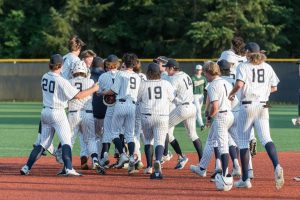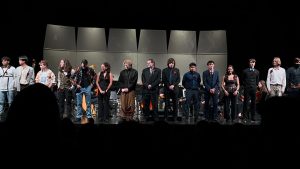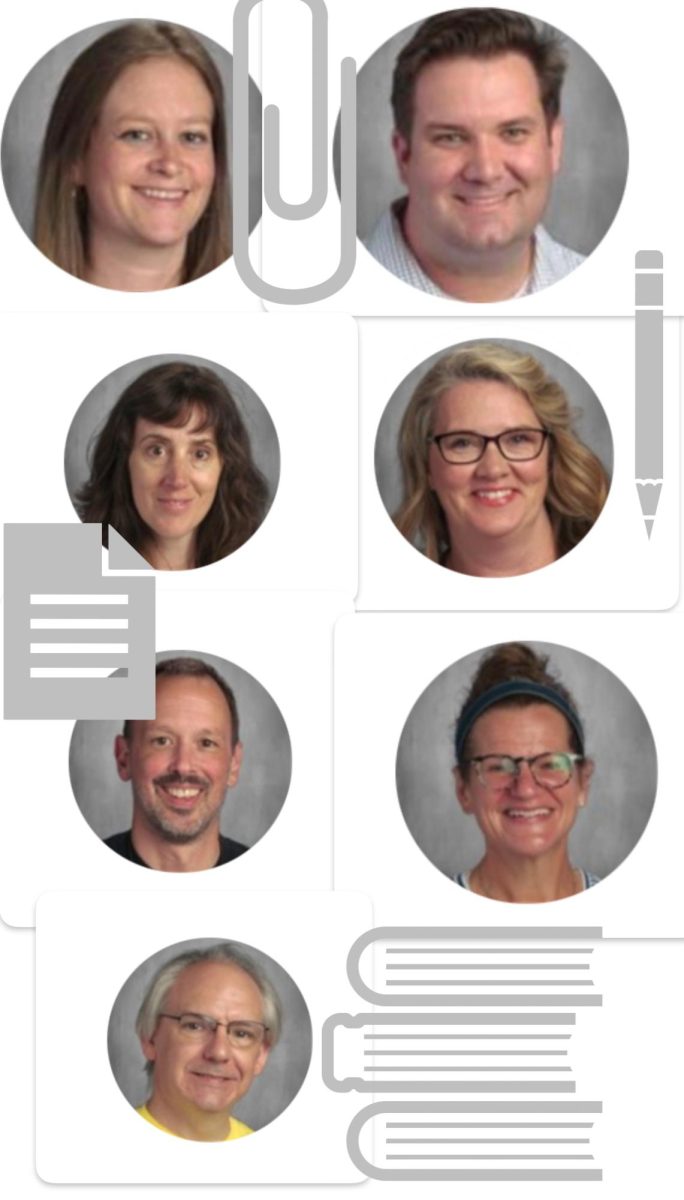The 2023-2024 school year is approaching its end, and senior graduates will finish up in just a couple of weeks. Students and teachers have worked the past eight months to teach content that will set students up for success in the coming years.
Although classes move at different paces and teachers’ curricula vary, the teaching staff at Wilsonville High School works in unity to progress and prepare for lessons.
Many students may overlook the bigger picture: As they develop mentally and deepen their knowledge in certain academic areas, they are constantly growing as students and as individuals.
From an overall perspective, the English Department of Education is one of many academic lineages that students experience throughout their high school careers. While activities range from reading, annotating, analyzing, revising, comprehending, and writing, each progression of these studies follows as a continuation of a student’s previous practices.
So, how are learning targets translating and evolving from one year to the next?
As freshmen, students focus on basic skills and adjust to high school literature based on where they begin as incoming students. English 9 is a baseline language arts class that most every high schooler at WVHS will take (with the exception of a few students taking online courses). Freshman Jack Cutting is one of the handful of kids taking an online English course through high school.
“I started in person, and now I’m doing my language arts class online,” Cutting shares articulately. “I didn’t like it in person and I can finish the class earlier through the online program.”
While the classroom setting is ideal and convenient for most students, not everyone likes the standard ninth-grade class and prefers to work at their own pace and at a more advanced level.
Two of the English 9 teachers, Ms. Pattishall and Ms. Huggins, enlighten students on where their classes are currently in the curriculum.
“We’re currently working on Romeo and Juliet in ELA 9,” Ms. Huggins says. Although most upperclassmen can recall this salient unit, Ms. Huggins also explains that the teachers of English 9 are reformatting some of the lessons and going about the curriculum slightly differently this year.
“We’re concentrating on how it is portrayed differently across different mediums, so we’re reading parts, watching movie adaptations, and seeing it on stage. We talk about the directors’ choices and how they change or enhance the story,” Huggins remarks.
Ms. Pattishall agrees with Huggins’ comments in adding, “We’re reading, watching and acting out the play.” Moving through writing and comprehension content can seem daunting, but the teachers at this level have dedicated time to piecing together an interactive, thought-evoking schedule for freshmen.
Justifying this, Ms. Huggins adds, “It’s been successful for the students,” she inquires based on her class’ deepened literature circle conversations, “and I do feel that they’re well prepared for next year.”
Ninth graders have worked through several unique units this year, including Literature Circle reading, academic conversations, short stories, book reports/research analysis, and even touching on poetry fundamentals.
Ms. Pattishall emphasizes the importance of immersing students in physical books, recalling, “In October, we moved into our unit on Night, which we read as a whole class.”
Between working through Shakespearean language and conducting independent studies, students were able to work independently and simultaneously practice communicating with their classmates through culminated exhibitions and oral presentations.
Students also responded quite well to the year. Freshman Maylin Brogren has Ms. Huggins and says, “I think this year’s gone pretty well. I think the class has been beneficial and productive.”
“I think they get a lot of structure their freshman year,” Ms. Pattishall declares, “because they are transitioning into high school, and a lot of classes work like a bridge from middle to high school.”
Not only have the students felt successful in the class, but the ELA 9 teachers have collaborated brilliantly with one another. This will set students up for confidence as they begin their sophomore year since they will have already been familiarized with poetry, which is a central lesson in 10th-grade English.
Currently, though, sophomores are knee-deep in a class book (Fahrenheit 451 by Ray Bradbury), which integrates many lessons like practicing craft, learning to communicate clearly, and editing peer work.
Talking about this year’s classes, Ms. Mosey shares, “I’m almost completely focused on the present, finishing the school year strong.” She continues explaining that the new block schedule has “Demanded a new rhythm, and there is some rearranging of content that might be needed before next year.” Many teachers voice their ease when working with their grade-level teacher groups in forming future curriculum plans, especially through the August camp for administrators.
“I’m thinking about changing the order of texts, so we’ll read different pieces during the short story unit. I find that working with new material amps up my creativity and energy for lesson planning and delivery,” Mosey reiterates.
This said, a handful of sophomores already experience ‘senioritis,’ meaning they skip class and act carelessly about completing assignments. Jack Moore has Ms. Mosey but admits, “I mean, I skip that class a lot, so I’m probably not going to be very prepared for next year, but I like all the language arts teachers at the school that I’ve met, so far.”
Prepping for eleventh-grade English is a task in itself. Still, especially for students transitioning into AP Lang, it’s crucial to have a foundation in literary skills because, as Junior Wuinn Gann-Winslow puts it, “We’ve gone a lot more in-depth, and the work this year has been more challenging, while also preparing rigorously for the AP exam.”
Students in AP Lang dedicate a great deal of time to practicing for the AP test, which Mr. Fitz and Mr. Jenkins also prioritize curriculum preparation for. Mr. Jenkins recalls a student from his AP Lang class whining, “Ugh. This is the most prepared I’ve ever been for any test in my life,” ironically justifying the effort and success Mr. Jenkins has had pre-exam teaching.
Jenkins replies to this comment by remarking, “All joking aside, I take pride in getting my students to feel fully confident for each AP exam.”
Both AP Lang teachers arrange a class time to be used submerged in books like The Great Gatsby and various non-fiction literature. “AP Lang focuses on writing so much that students will have to get back into the habit of reading and practicing penmanship,” Mr. Fitz pronounces.
For the past many years, the AP exam for 11th grade has been handwritten essays, but a major change is coming in 2025, as the exams will be digitized. When asked about how students will be prepared for senior year English, Mr. Fitz says, “Some students will go to English 12, which might feel like less pressure for them. Others will take AP Lit, which will feel like a step up.”
“I have Mr. Greger,” Senior Peter Burnham begins, “and I feel like I’ve learned a lot and improved my understanding of writing more, along with enhanced my techniques and skills with literature overall.”
With the AP exam on May 7th, students and teachers worked profusely up until the date to be comfortable with the content headed into the test. As a final project in the class, Mr. Jenkins informs that “They are writing children’s books as a fun assignment before graduation.”
Mr. Greger is a new teacher at Wilsonville. However, he reflects positively on his experience by saying, “I have learned the culture of the school, and to change things up next year, I would like to incorporate more writing and projects into the curriculum.” While Greger’s class writes satires modeled after A Model Proposal, teachers also want to prepare students honestly for college, which they confess entails much more reading.
ELA 12 is hurtling through a unit called “Voices,” a blend of short stories and poetry practice. “My only challenge has been occasional writer’s block,” Burnham shares in alluding to the sense of his English class.
“We don’t do anything until we solve the day’s New York Times Connection or Strands games. That’s the rule,” Ms. West insights. She describes her enjoyment of each class’ “vibe” and the dynamic of her students. Rarely are students blessed by thoughtful, empathetic teachers who pour their time and energy into their classes and genuinely miss students as they graduate.
Ms. West says, “The idea of ‘next year’ is pretty wide open since the seniors will graduate and move on. I hope they’ve gained the skills to communicate effectively, think critically, argue successfully, and, most importantly, create and sustain meaningful relationships with others. I think that’s the whole point of school,” she states, “not just English class.”









